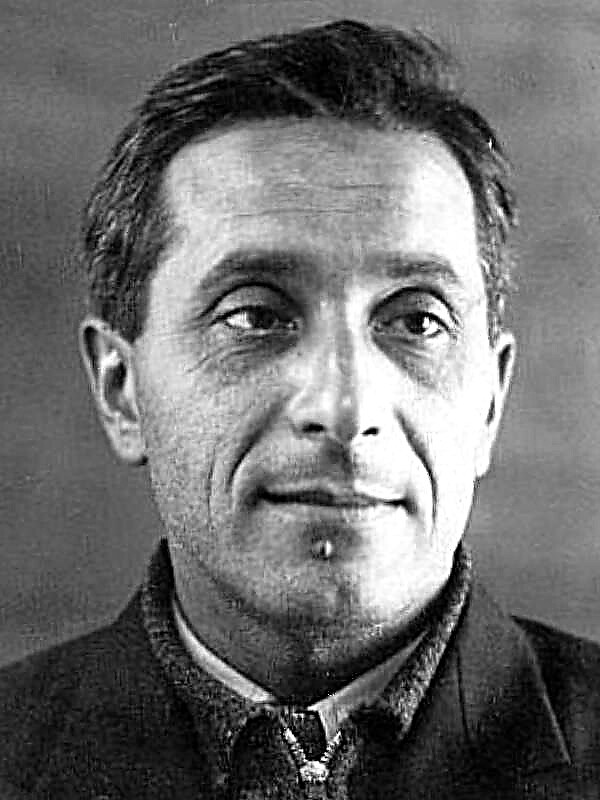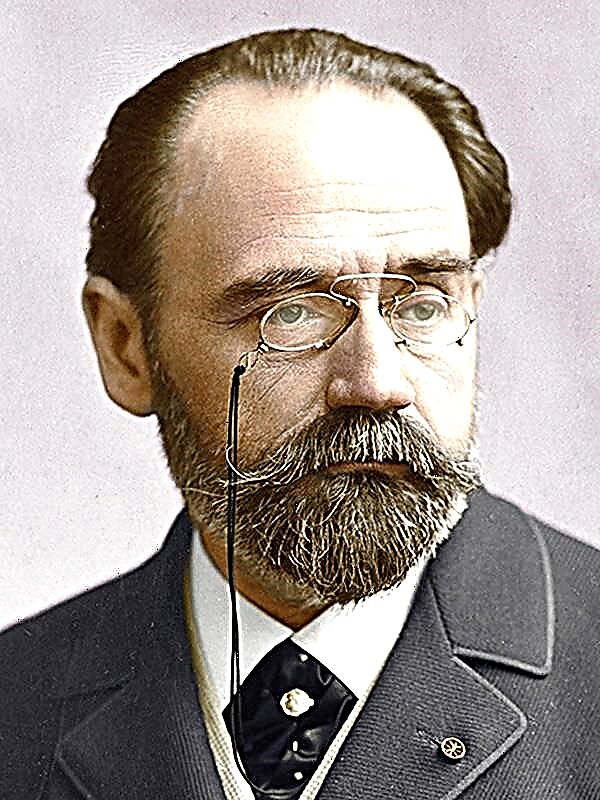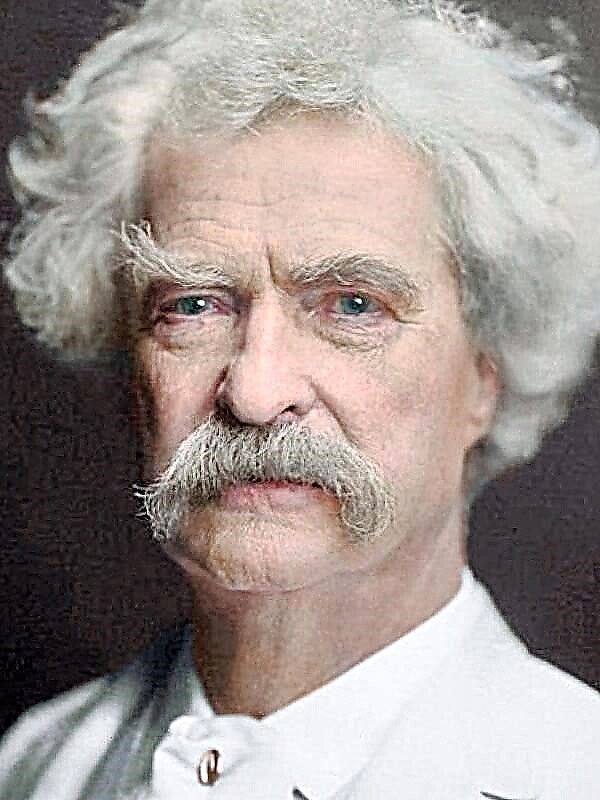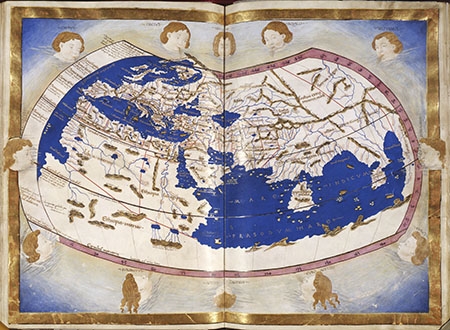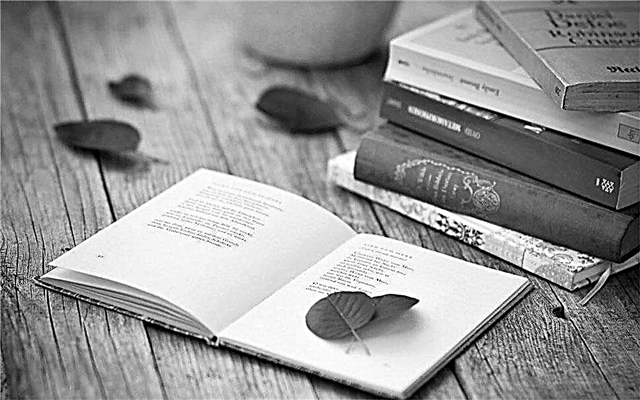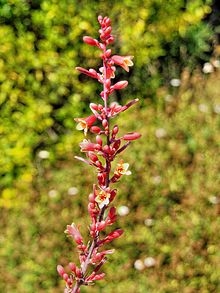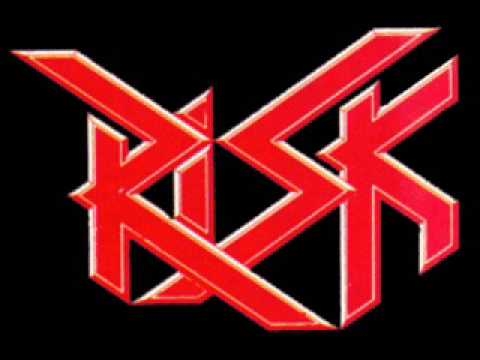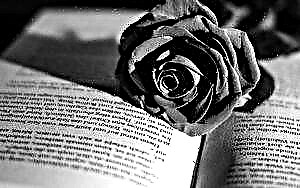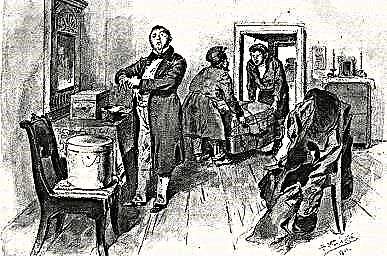The first ode of Lomonosov - “On the capture of Khotin” (1739) - is dedicated to the victory over the Turks. The Turkish army is obsessed with hellish malice: "Isn’t hell breaking the bonds and wants to open the jaw?" But the Russians are burning with love for the motherland and the empress, and therefore, "to prevent the eagles from holding flight, there are no such obstacles in the world." The shameful Turks are ashamed of the sun itself. The vision of John the Terrible and Peter the Great is presented: they are proud that Anna Ivanovna continues their work. The poet urges the Turks to rely on the magnanimity of the victor, but nothing will save the evil Turkey itself: “Damascus, Cairo, Alepp will burn; Furnish the Russian fleet of Crete; The Euphrates will be embarrassed in your blood. ” Russia under Annin's cover flourishes from the Vistula to China; the enemy does not dare to trample the fields "with wheat, where peace is sown"; peaceful shepherds sing songs about military glory.
In the ode to the birthday of Ivan Antonovich (1741), the baby emperor inherits his glorious ancestors, performing a more marvelous feat than Hercules: in the cradle he defeated not the snakes, but the evil "giant" (Biron), who wanted to "exceed Vyshnya power". The full mythology of Russian history unfolds in odes dedicated to Empress Elizabeth Petrovna.
Russia is kept by God. Although from time to time He sends His anger at her, but then changes it to mercy: “I was the Creator in the anger of Rossam, But now the Father packs them” (Oda 1742). God, as in previous odes, crushes anger, destroying the intentions of the enemies of Russia (in the same place and elsewhere). A prayer is offered to Him: "For only the great countries rest, / For the happiness of many centuries, / Set as the Sun before You / And as the Moon the throne of Peter." (Ode to the birth of Pavel Petrovich)
The great heroes and heroines among the Russian rulers have been since antiquity and now shine “above the stars” (Ode 1752). Particularly great was the work of Tsar Alexei: he defeated the Poles and Tatars, “he put the judgment and the truth” (Ode to the birth of Pavel Petrovich). But nothing compares with the deeds of Great Peter: “The Creator of the world ... sent to Russia a man that had not been heard from time immemorial” (Ode 1747). Peter is likened to the Savior (and his mother, in imitation of the Mother of God, is called "blessed in wives" - Ode 1752). He pulled Russia out of the darkness of ignorance, giving her a new life. He defeated the enemies - “tamed the wars of war” (Ode 1761); he set up a fleet and sent to the East "Russian Columbus"; under him, “the divine sciences extended their arms to Russia” (Ode, 1747). Peter's wife continued his work: “If her life had lasted, Sekvana would have been ashamed of her art before the Neva long ago” (ibid.). Subsequent years - again the years of darkness from which God delivered Russia by enthroning Elizabeth Petrovna, “Petrova daughter”, “beloved Silence” (meaning the name Elizabeth): “He looked into Russia with a meek eye, / And seeing that deep in the darkness, / With power ryok: let there be light. / And speed. Owner of the creature! / You are the creator of the light to us, / That you lifted Elizabeth to the throne. " (Ode 1746)
The silence under Elisabeth is unbreakable: she herself is her “city of fencing” (Ode 1747); she thwarts the war without drawing her sword, and with her “the bloody Mars does not dare to stretch out her hands to us” (Ode 1748). Russia is flourishing lightly with Peter's daughter (Ode, 1752). Its spaces are huge: the Russian state “stretches its legs” against the Chinese wall and “rests its elbow” on the Caucasus (Oda, 1748). Monarch bounties pour out throughout this space. Farmers peacefully collect earthly fruits. “Treasures full of ships dare to sea” beyond Silence (Ode 1747). Buildings are being erected that are incomparable with the ancient pyramids and the Semiramid gardens: they "erected people - here the deity itself is built." Muses joyfully glorify the monarchy and her deeds (Ode 1750).
But the main benefit of the divine Silence is the patronage of the sciences (Odes 1747 and 1750). Russia should expect a lot of good from sciences. The hidden treasures of the earth, the treasures "by which India boasts." The vast northern lands will be explored. The new “Russian Columbus” will pass through the icy seas and usher in the generosity of Elizabeth to unknown nations in the fabulous warm countries. Huge wealth will flow from the Ural Mountains. Mechanics will dig channels and drain swamps; chemistry “into the earth’s bowels ... penetrates the gaze with wit”, geography will show Elizabeth cities and villages, blessed in her citizenship; The "science of light meteors" will relieve all the worries of farmers and sailors.
So that the welfare of Russia does not dry up, God continues Peter's offspring. The marriage of the Grand Dukes Peter Fedorovich and Ekaterina Alekseevna is a repetition of the former union “To the joy of the Russian people / Peter and Ekaterina again / Counts happiness and breed, / Prigozhsgvo, youth and love”. (Ode to marriage ...)
When Pavel Petrovich is born, Peter the Great "breathes in his great-grandson and restores his family in him." The poet addresses the newborn: “The essence of the Petrov’s business is great, but many are still ready for you to stay in front” (Oda for the birth of Pavel Petrovich). In the future, from the line of Russian tsars, “Peter the Great would be born to enlighten all mortal families” (Oda ... for the birth of Anna Petrovna).
A constant subject of human wonder is nature. It is unknown to man how God “in orderly” created it, lit the stars, “kept the sea with shoals,” created a variety of animals and monsters (“Ode, chosen from Job”). The closer we look at nature, the more we are struck: approaching the sun, we would see “fiery ramparts strive and find no coast” (“Morning Reflection ...”); at night we can see how “dawn is rising from the midnight countries”, and we cannot explain this phenomenon (“Evening reflection ...”). It is not surprising that the animate nature shares all the joyful events in the life of Russia: “The banks of the Neva are splashed with their hands, the banks of the Botany waters tremble” (Ode 1742).
In a word, Lomonosov is a poet who, in selfless delight, sings the greatness of God in nature and history.
The following odes by M.V. Lomonosov were used (the word "ode" in the title is omitted):
Empress Anna Ivanovna to victory over the Turks and Tatars and the capture of Khotin (1739). On the feast of the birth of Emperor John III (1741). On the arrival of Elizabeth Petrovna from Moscow (1742). Evening reflection on God's Majesty in the case of the great Northern Lights (c. 1743, printed in 1748). On the day of the marriage of Peter Feodorovich and Ekaterina Alekseevna (1745). On the day of the accession to the throne of Empress Elizabeth Petrovna (1746, 1747, 1748, 1752, 1761). For the mercy shown in Tsarskoye Selo (1750). Selected from Job; Morning Reflection on God's Majesty (printed in 1751). At the birth of Grand Duke Pavel Petrovich (1754). On the birthday ... Elizabeth Petrovna and on the birth of the Grand Duchess Anna Petrovna (1757).

